桌面型FDM多色3D打印机的设计(含CAD零件图装配图,SolidWorks三维图)
无需注册登录,支付后按照提示操作即可获取该资料.
桌面型FDM多色3D打印机的设计(含CAD零件图装配图,SolidWorks三维图)(任务书,开题报告,开题报告PPT,论文说明书14000字,CAD图9张,SolidWorks三维图)
摘要
3D打印技术是一种近几年快速发展的新型技术,是一种基于离散-堆积原理的先进制造技术,能够制造复杂形状的零件,随着新型复合材料、梯度功能材料的广泛应用,如何利用快速成型技术实现多材料的复合材料以及梯度功能材料的制备已成为近年的研究热点。
多色的3D打印技术能直接获得产品设计的彩色外观,而不需要后处理流程,在消费领域、原型 手板及教育行业较以往的单色3D打印制件有着巨大优势.多材质的3D打印技术能将不同性能的材 料构建于同一零件上,缩短加工流程,减少装配,提高性能.3D打印技术经近些年的发展,已经岀现多种实现多材料、多色打印的技术方法,并开发岀商品化装备。
本课题以多材料零件的快速成型作为研究的出发点,克服传统制造方法在多材料零件加工方面的限制,设计热塑性材料的多材料快速成型设备,通过查阅文献了解目前3D打印的现状,掌握3D打印技术原理,并根据对材料打印要求,通过对比分析,确定整机设计方案;通过设计计算,确定各部件机械结构与尺寸。
关键词:3D打印 多色 设计
ABSTRACT
3D printing technology is a new technology that has developed rapidly in recent years. It is an advanced manufacturing technology based on the principle of discrete-stacking. It can manufacture parts with complex shapes. With the wide application of new composite materials and gradient functional materials, how to use it? Rapid prototyping technology to realize the preparation of multi-material composite materials and gradient functional materials has become a research hotspot in recent years.
The multi-color 3D printing technology can directly obtain the color appearance of the product design without the need for post-processing processes. It has a huge advantage over the previous monochrome 3D printing parts in the consumer field, prototype prototype and education industry. Multi-material 3D printing technology It can build materials with different properties on the same part, shorten the processing process, reduce assembly, and improve performance. After the development of 3D printing technology in recent years, a variety of technical methods for realizing multi-material and multi-color printing have been developed and developed Commercialized equipment.
This topic takes the rapid prototyping of multi-material parts as the starting point of the research, overcomes the limitations of traditional manufacturing methods in the processing of multi-material parts, designs multi-material rapid prototyping equipment for thermoplastic materials, understands the current status of 3D printing by consulting literature, and masters 3D printing. According to the technical principle, and according to the material printing requirements, through comparative analysis, the design scheme of the whole machine is determined; through the design calculation, the mechanical structure and size of each component are determined.
Key words: 3D printing multicolor design
总体方案设计
FDM(Fused Deposition Modeling)原理一般称之为熔融沉积技术,基于熔融沉积3D打印机基本原理是逐层打印,通过打印机将材料融化并挤出。计算机中将格式STL文件加入到电脑软件当中,通过上位机与3D打印机的控制主板进行连接,由分层软件将三维模型分成二维CAD模型,并将其转换成控制板可以识别、读取。执行、加工的的G代码,从而控制进给机构电机的运行方向、挤出速度等参数的协调运动,完成打印工作。基于FDM工艺的3D打印机从控制结构上看,分上位机和底层控制两层,上位机主要运行三维设计软件、切片软件、打印控制软件等。底层控制包括嵌入式微控制器、主板、步进电机、电机驱动器、限位开关、热塑材料挤出机、打印平台、温度传感器等。
本毕设3D打印机主体框架结构拟采用亚克力板,该板可以用激光切割,成型质量好,价格便宜,强度高。框架主要功能为固定、支撑打印机各个部件如喷头、丝杠螺母机构。拟设计成龙门框架的样式,使得结构紧凑。
2.3.2.3传动部分设计
熔融沉积3D打印机进给部分主要分X、Y、Z三轴进给机构,其中挤出机部件主要由安装在X轴上,进给机构可以保证喷头可以在预定的路线时间运动,挤出机主要保证挤出丝能够合理地喷射出粗细均匀且满足要求的打印丝,是FDM多色3D打印机整机最重要进给机构。
第3章 进给伺服系统设计
3.1零部件的主要参数指标
(1)水平X方向脉冲当量δX=0.005mm/脉冲
(2)水平X方向最快移动速度VXMAX=3000mm/min
(3)水平 X 方向最大加工长度为:2200mm
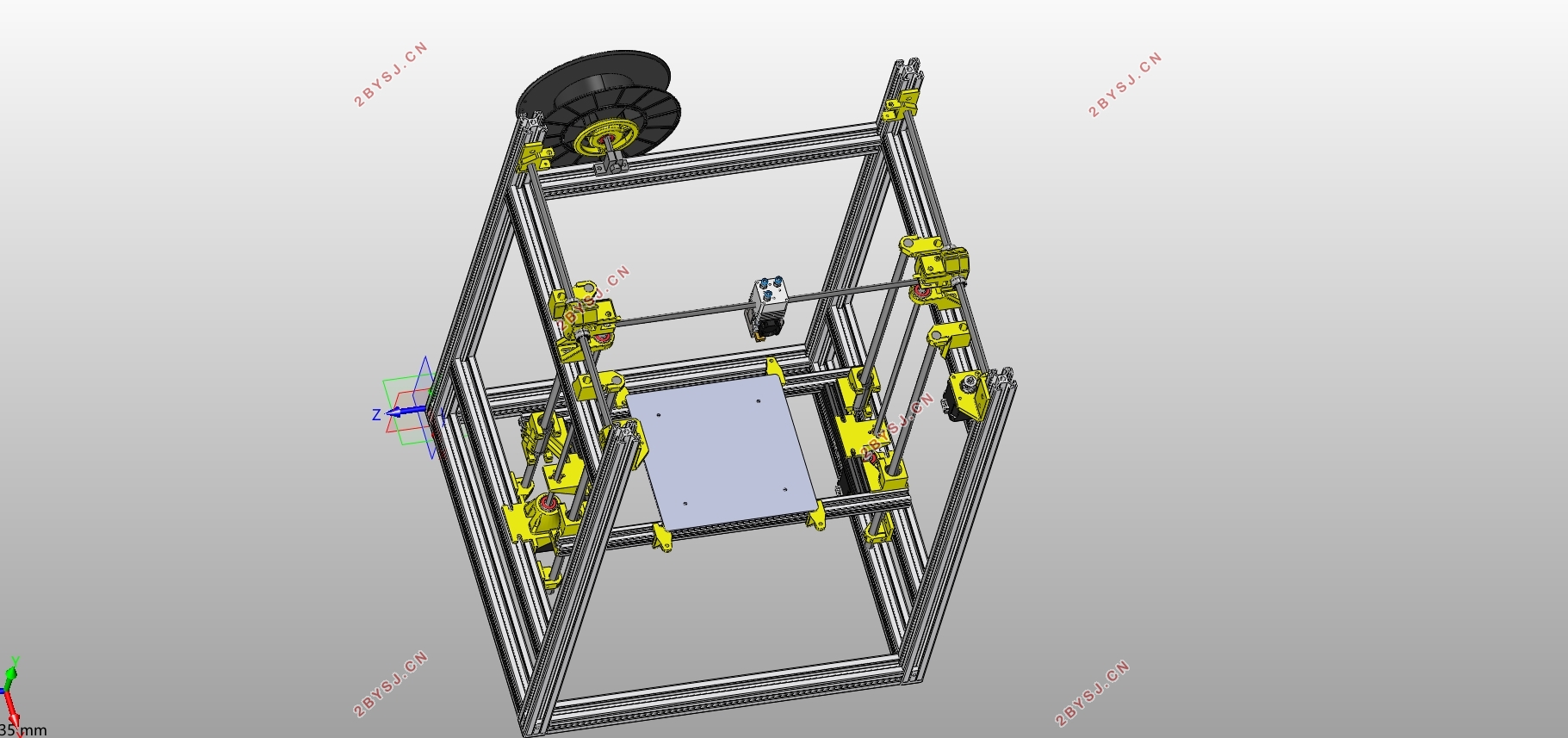
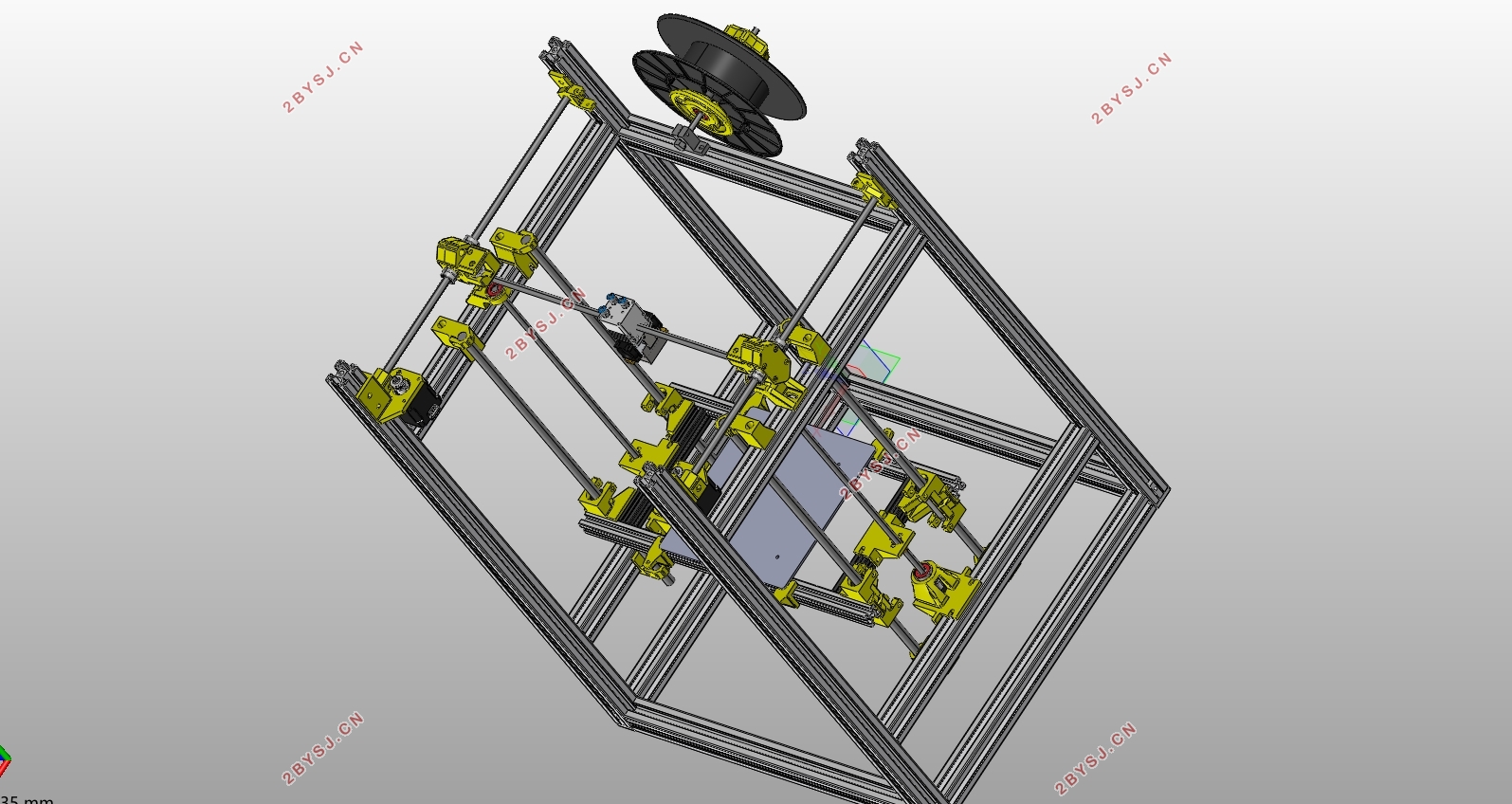
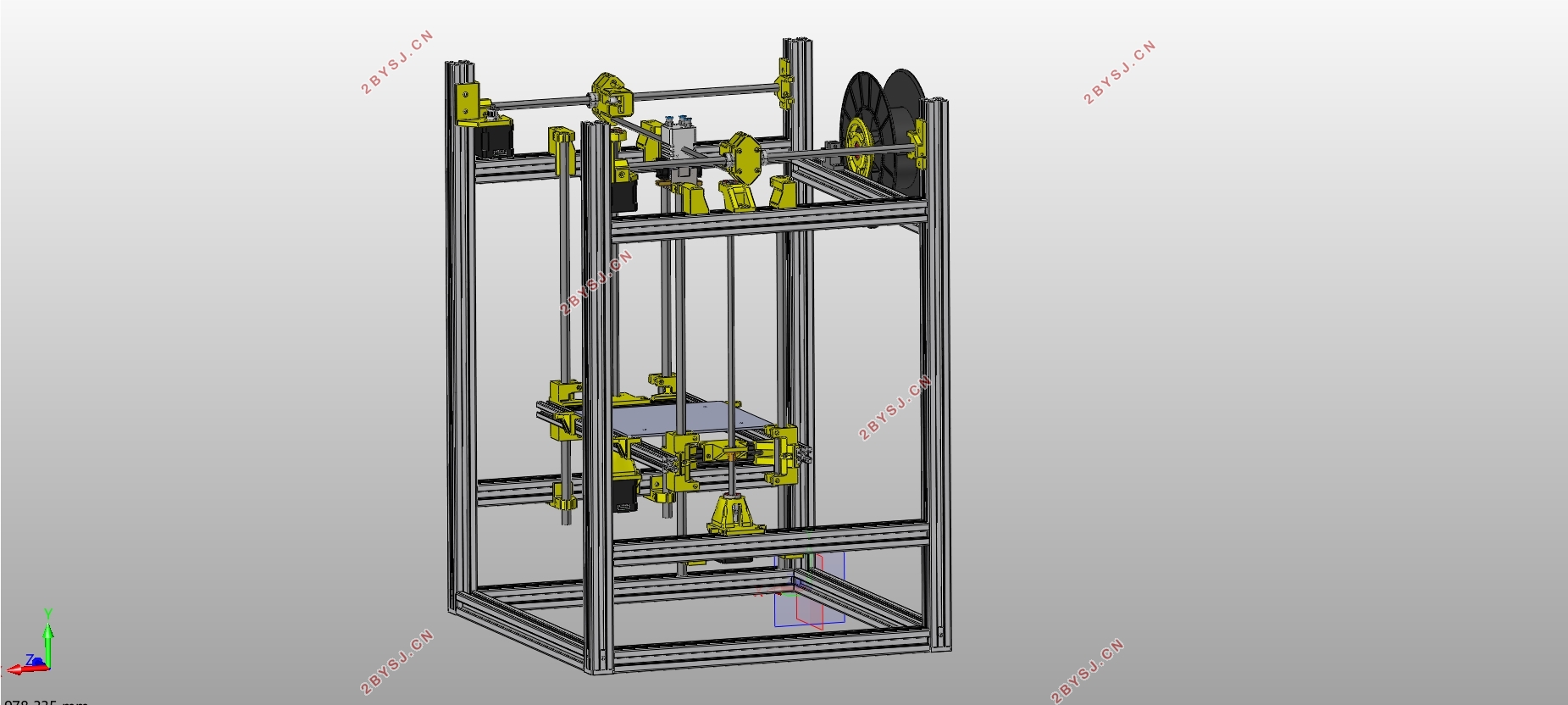
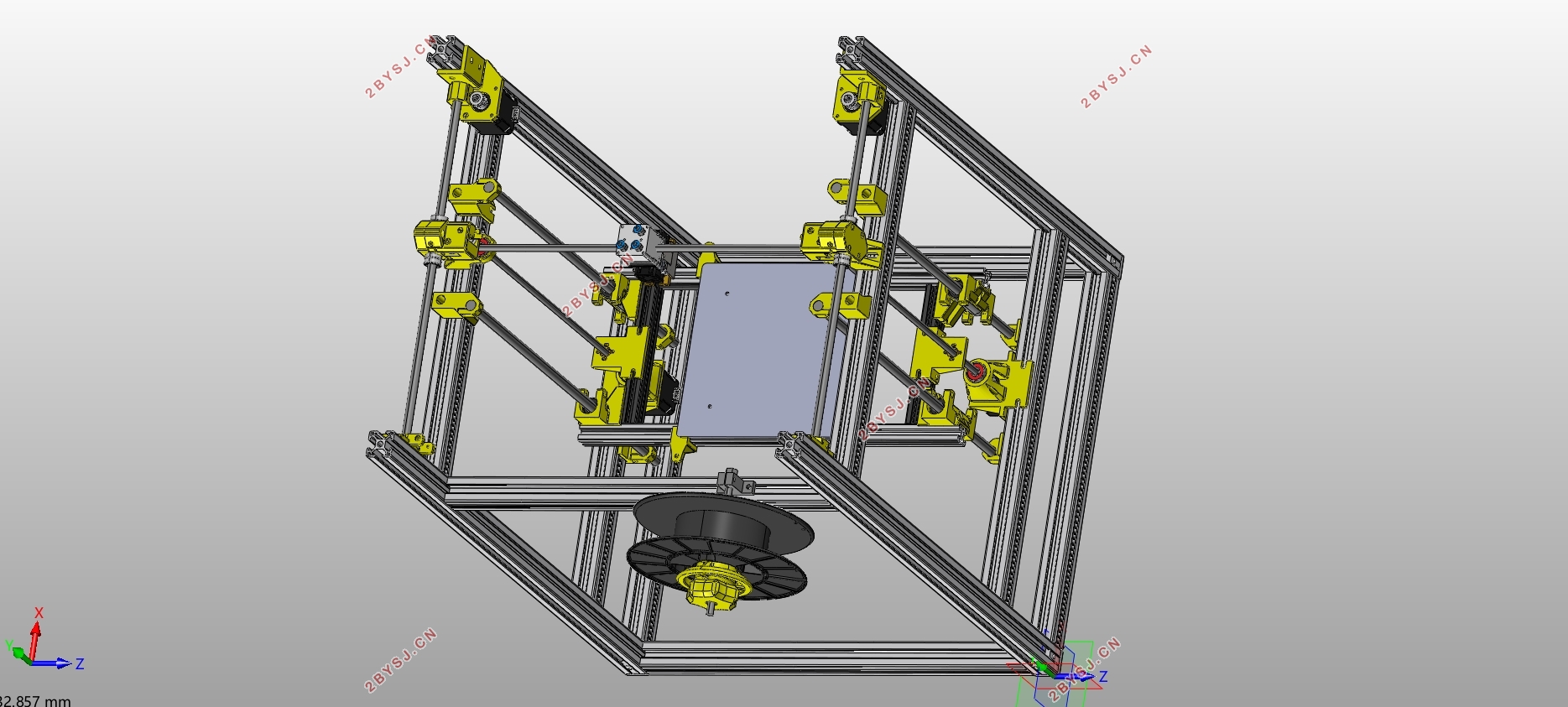
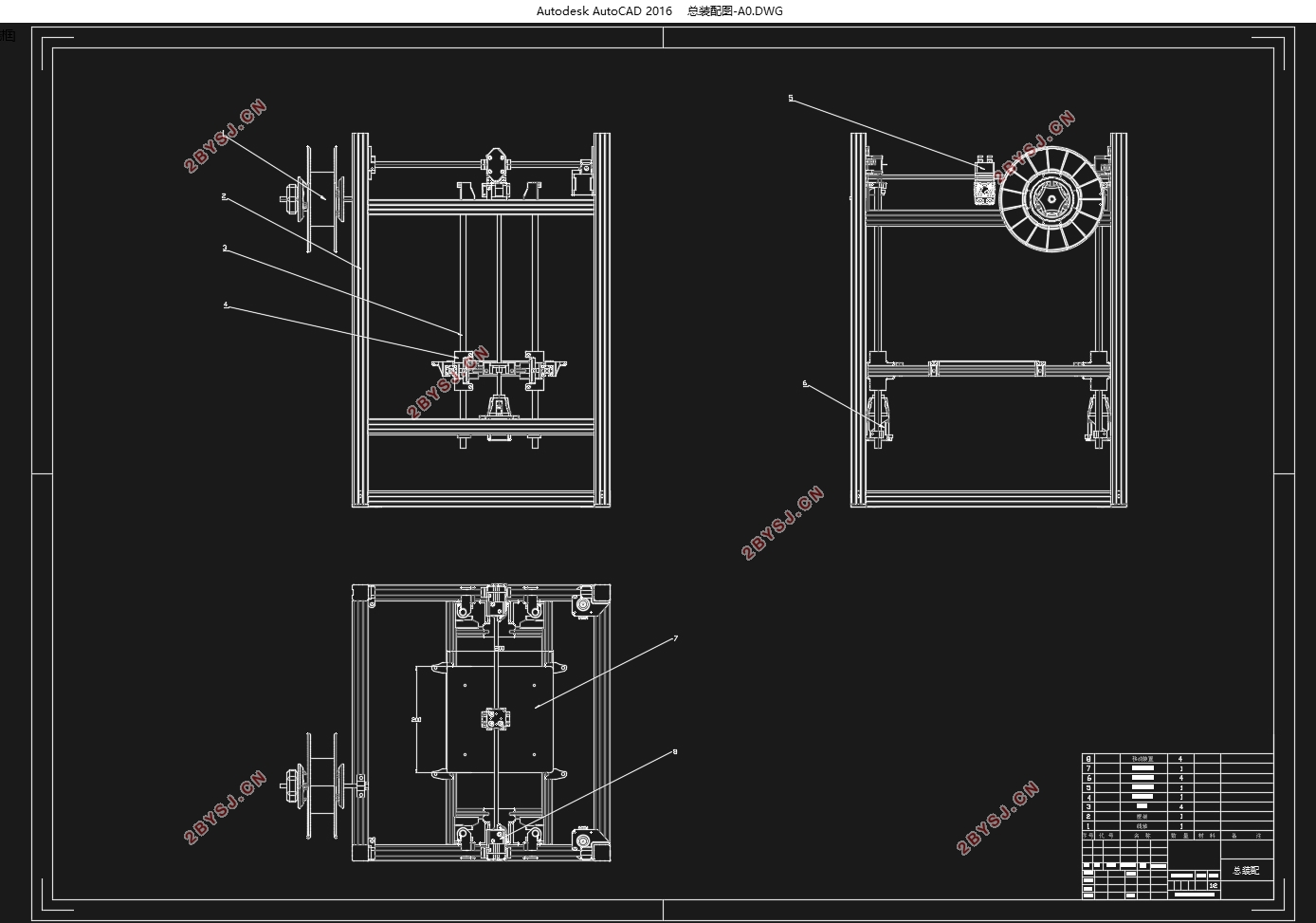
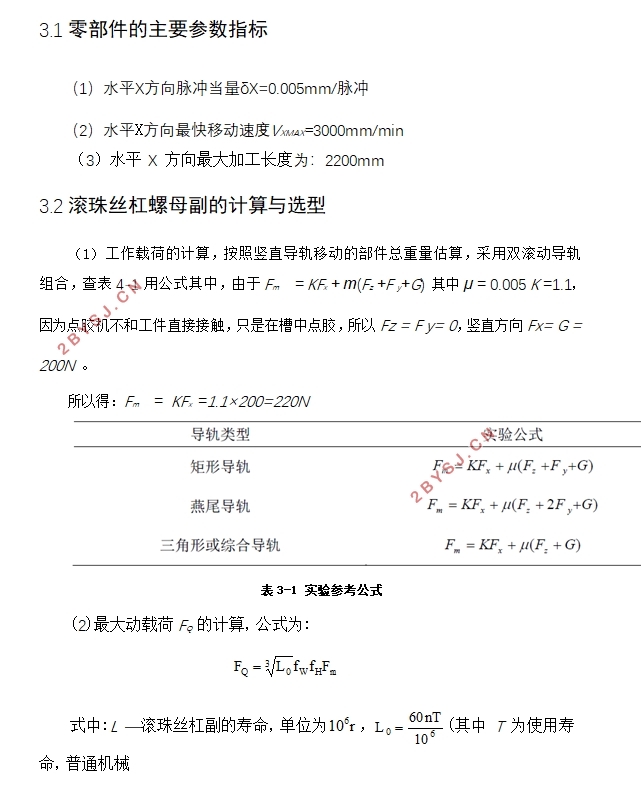
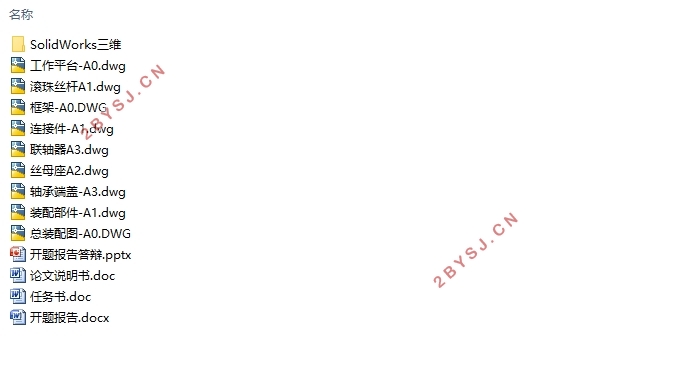
目 录
摘要 1
ABSTRACT 1
第1章 绪论 1
1.1 3D打印机概述 1
1.1.1 什么是3D打印机 1
1.1.2 3D打印的特点 1
1.2 课题研究的目的和意义 2
1.2.1 研究3D打印机的时代背景 2
1.2.2 国外3D打印技术的发展现状和趋势 3
1.2.3 国内3D打印发展的现状和趋势 4
1.3 本论文的主要内容 5
第2章 总体方案设计 6
2.1喷头系统的功能要求 6
2.2系统结构框图 6
2.3 课题的主要研究工作 7
第3章 进给伺服系统设计 1
3.1零部件的主要参数指标 1
3.2滚珠丝杠螺母副的计算与选型 1
3.2水平方向步进电机的选用 4
3.3 自动送料进给电机的选用 6
3.4伺服系统初步参数确定 6
3.5步进电机 7
3.6轨的参数确定 11
3.73D打印机Y轴进给系统中滚珠丝杠螺母副的设计及计算 12
第四章 机械结构设计 16
4.1总体机械设计 16
4.2龙门框架机械设计 16
4.3底盘—Y向进给机构—热床部件设计 17
4.4 X轴传动设计 18
4.5打印喷头设计 18
第五章 三维建模 1
4.1 零件建模 2
4.2 装配体命令 3
总结 1
参考文献 1
致 谢 2
